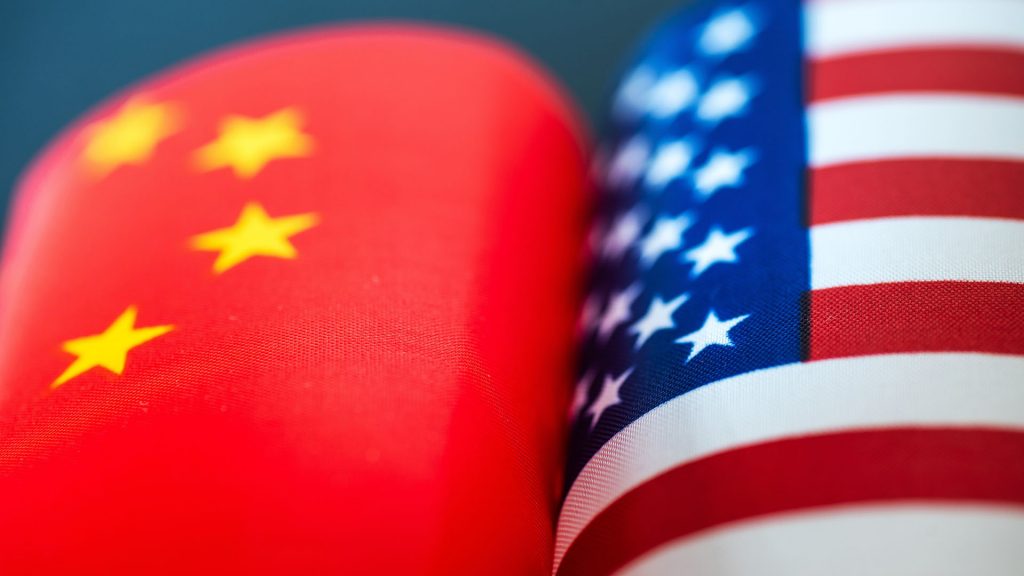Key Takeaway
From soybean farmers to automobile manufacturers in the US, Japanese machinery producers, and the tech industry’s global suppliers, the impact of what has been deemed a US-China trade war is already being felt. As tensions continue to increase and many await the outcome of proposed talks, business leaders everywhere are looking out for the latest insights that might impact their next steps – preparing to shift strategy at any moment.
China-US trade wars rage on
Beyond the immediate competitive environment, political and environmental changes can have a major impact on the success of a company, an industry or a region. In these turbulent times, unexpected changes in policy or international relations can immediately upset the delicate global balance many industries have come to rely on.
This past July, the Trump Administration announced a series of tariffs aimed at China, claiming unfair trade policies against the US. So far, the US has imposed three rounds of tariffs on Chinese goods, totaling more than $250B and impacting a wide variety of industries, from consumer goods to railway equipment.
Beijing has fired back, first imposing tariffs on $50 billion of US goods, and later retaliating with tariffs on an additional $60 billion. If this second retaliatory round is passed, the levies will cover more than 80% of all US exports to China.

On the other side, combined with previous actions, the latest 10% tariff on $200 billion worth of Chinese goods means roughly half of the products that China sells to the United States each year will be hit by American tariffs. The IMF warns that if this should escalate, it will have dire effects globally, including a permanent hit to global growth, and has already downgraded its global growth predictions from 3.9% to 3.7%.
While the Trump Administration has offered a $12B bailout to support affected farmers, if necessary, a full-scale bailout for all industries affected even by the first round of tariffs is estimated by the US Chamber of Commerce to cost $39B.
American consumer sentiment has already taken a hit since July, particularly when it comes to the outlook for steel and aluminum costs. Here’s a look at 4 industries that are already seeing an impact from tariffs imposed on both sides.
US Soybean farmers
China has of late been the largest market for US soybean farmers, as the crop is used in everything from hog feed to cooking oil. As a result, production had reached record levels to meet the rising demand. But with the onset of tariffs, China’s imports of the oilseed from the U.S. have dropped drastically by nearly 90% since September 2017. With it, the price per bushel dropped nearly $2, to $8.87.
Given not only the potential of tariffs but uncertainty as to the level and timing of their announcement, farmers are putting soybean crops into whatever sort of storage they can find, in the event that demand resurges. But as these crops don’t store as well as others, farmers are putting their entire inventory at risk as they wait.
The prospect, however, doesn’t appear to be entirely dire, as markets are advocating for farmers to store as much as possible. According to Bloomberg, “Soybean futures for delivery next July were about $9.27 as of Friday, indicating selling later may bring in more money. And traders are speculating that China-U.S. trade tensions may ease as the countries discuss a deal heading into the Group of 20 meeting in Argentina this month.”

US-China automotive industry
According to CNBC, in July, China raised the tariff on imports of U.S. automobiles to 40 percent just days after broadly cutting duties on foreign-made vehicles and parts to 15 percent, from 25 percent.
A survey released this week by the American Chamber of Commerce in Shanghai and Beijing-based American Chamber of Commerce in China indicate this is one of the hardest-hit industries, with 60% of respondents saying the initial $50 billion tariffs will negatively impact their companies, most significantly in terms of profit loss, higher production costs and decreased demand. 11.8% of respondents have already reduced employees as a direct result, and this is expected to increase with the second round of tariffs.
Tertiary impacts imposed by China include more inspections and slower customs clearance, and nearly one third discussed moving supply chain elements to countries outside of the US and China.

Some automakers are already making strategic decisions in anticipation of a negative impact. Volvo has shifted its production plans for S60 sedans and XC60 SUVs. BMW has shifted production of its X3 SUV to China to avoid import tariffs, impacting the South Carolina city of Spartanburg where it has been produced and where the firm employs 10,000 people. In the UK, Jaguar Land Rover reported losses for the first time in three years citing apprehension from customers over Chinese import duties.
Japanese machine tools
China is one of the biggest importers of Japanese machinery and a vital contributor to the industry’s growth. Following the latest in the trade war saga, Japan saw a decline in orders, according to the Machine Tools Builders’ Association, for the first time since 2016.
“Negotiations are still going fine, but customers are hesitating to take the last step and sign a contract,” an executive at a machine tool manufacturer said. According to Nikkei Asian Review, orders slid 1.1% year on year to 139.18 billion yen ($1.22 billion) in October, including a 2.5% drop in overseas demand to 81.83 billion yen.
This impact affects not only the standing of Japan’s machine tools industry, but the country’s wider market as a whole. It also saw effects from the wide web of Apple influence, following a dip in Apple’s stock which sent the Dow Jones spiraling 600 points this week. This came after a key supplier for Apple’s facial recognition technology noted a declining outlook re: volume of iPhone sales, impacting their suppliers globally.
The level to which these global industries are interconnected and interdependent is hard to ignore, and it’s becoming even more apparent as the tariff wars escalate.
Each of these suppliers is intensely connected to the tech industry, which may also see a significant impact as tensions rise. Case in point? Tech companies from Dell to Cisco and HP have already asked for exemptions over fears of increased costs for their networking equipment, which will impact profits, hinder innovations and ultimately result in a loss of US jobs.
US retailers
Many of the most popular big box retailers in the US – from Macy’s and GAP to Bed, Bath & Beyond and Best Buy, depend on imports from China. Many of them rely on competitive pricing and heavy discounts to continue attracting customers, so in the event of a trade war they have little room to play with hiking prices for the end consumer.
UBS conducted a survey to identify US brands that are most at-risk in the event of a trade war, citing several major retailers, including, for instance, Kohl’s. “Kohl’s derives 40% of its sales from private brands, according to UBS, which says ‘we don’t believe [KSS] has the pricing power to offset China-sourcing exposure in a trade-war scenario.’”
Retailers like Macy’s “typically source in China and many brands have growth plans intertwined with growing share in the attractive Chinese market,” said UBS. Despite efforts to diversify manufacturing to other, lower-cost Asian countries, “the sector remains disproportionately vulnerable to escalating tariffs.”
The extent of tariff impacts can be felt across the globe. Close monitoring for relevant keywords in news and social media will surface forward-looking signals that might indicate what’s coming and help decision-makers make more informed, predictive strategic calls.

